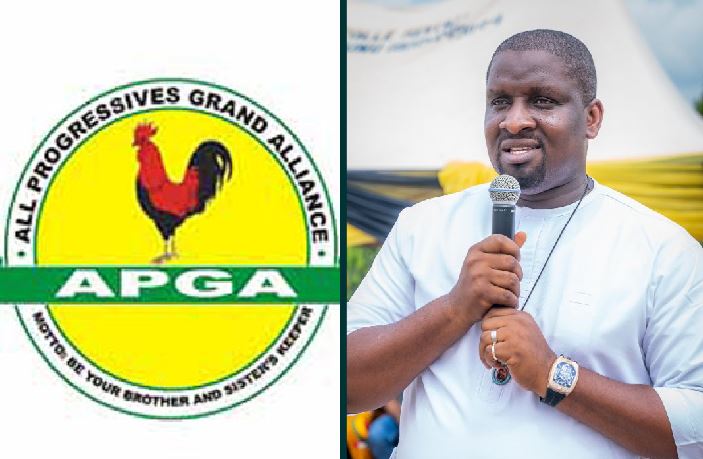“Issues and Concerns of Political Office Holders in Nigeria towards Developing the Generality of the Populace” – APGA National Chairman Advocates for Resolving the Essence of Seeking Political Office! -Written by NDUKA ANYANWU.
Nigeria’s political landscape is plagued by numerous issues and concerns that hinder the development of its populace. At the forefront of these challenges is the failure of governance, which manifests in the declining capacity of political leaders to recognize systemic risks and address them effectively. This has led to widespread disappointment among Nigerians, eroding trust in the electoral process. Key Concerns:
- Security: The public expects political office holders to ensure security of lives and properties, a critical aspect of good governance.
- Corruption: Nigeria’s ranking in the Transparency International Corruption Perception Index is alarming, with a score of 25/100 in 2020 and grows higher even at this time in 2024
- Economic Distress: Despite being Africa’s largest economy, Nigeria is experiencing deep economic distress, with over 150 million citizens living in extreme poverty.
- Clientelism: Political entrepreneurs dominate Nigeria’s political landscape, prioritizing personal interests over public needs.
To address these concerns, the All-Progressives Grand Alliance (APGA) through its National Chairman, Barr. Sly Ezeokenwa advocates for resolving the essence of seeking political office. APGA suggests that political leaders should prioritize the development of the general populace, rather than personal gain.
APGA’s Proposed Solutions:
➢ Robust Electoral Laws: Strengthening laws to prevent ambiguity and ensure
clarity in the electoral process.
➢ Judicial Accountability: Establishing mechanisms to hold judges accountable for their decisions and actions.
➢ Transparency: Promoting transparency in the judicial process to build trust among Nigerians.
APGA’s Epistocratic Vision for Nigeria:
The All-Progressives Grand Alliance (APGA) advocates for an epistocratic system in Nigeria, prioritizing:
- Education: Improving education to develop a knowledgeable citizenry.
- Expertise: Encouraging experts to participate in governance.
- Good governance: Promoting transparency, accountability, and effective decision-making.
Where leadership is based on knowledge and competence, this would require significant improvements in literacy levels, civic education, and the engagement of local NGOs to promote civic education to promote developmental strides in the polity. Strategic Challenges:
- Decline of National Security and Nationhood
- Weak Political Order Formation
- Decline of State Capacity and the Elite Class
- The Curse of Oil
- Corruption
- Uncontrolled Population Growth
- Loss of Global Influence
Ultimately, addressing these challenges requires a collective effort from political office holders, civil society, and the general populace. By prioritizing the development of the people and promoting good governance, Nigeria can overcome its current woes and achieve sustainable progress.
In our next article we shall expatiate more on these STRATEGIC CHALLENGES




